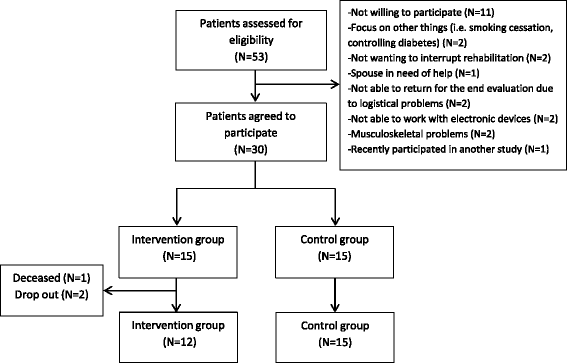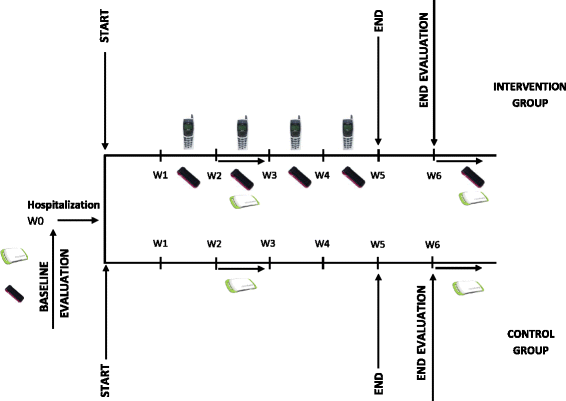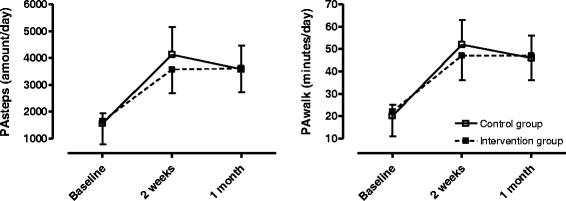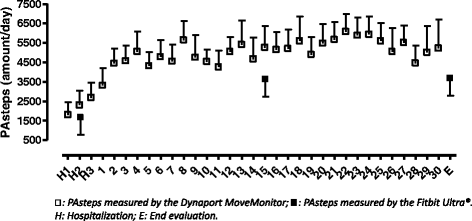The effects of a physical activity counseling program after an exacerbation in patients with Chronic Obstructive Pulmonary Disease: a randomized controlled pilot study
- PMID: 26530543
- PMCID: PMC4632467
- DOI: 10.1186/s12890-015-0126-8
The effects of a physical activity counseling program after an exacerbation in patients with Chronic Obstructive Pulmonary Disease: a randomized controlled pilot study
Abstract
Background: In some patients with COPD, the disease is characterized by exacerbations. Severe exacerbations warrant a hospitalization, with prolonged detrimental effects on physical activity. Interventions after an exacerbation may improve physical activity, with longstanding health benefits. Physical activity counseling and real-time feedback were effective in stable COPD. No evidence is available on the use of this therapeutic modality in patients after a COPD exacerbation.
Methods: Thirty patients were randomly assigned to usual care or physical activity counseling, by telephone contacts at a frequency of 3 times a week and real-time feedback. Lung function, peripheral muscle strength, functional exercise capacity, symptom experience and COPD-related health status were assessed during hospital stay and 1 month later.
Results: Both groups significantly recovered in physical activity (PAsteps: control group: 1013 ± 1275 steps vs intervention group: 984 ± 1208 steps (p = 0.0005); PAwalk: control group: 13 ± 14 min vs intervention group: 13 ± 16 min (p = 0.0002)), functional exercise capacity (control group: 64 ± 59 m (p = 0.002) vs intervention group: 67 ± 84 m (p = 0.02)) and COPD-related health status (CAT: control group: -5 [-7 to 1] (p = 0.02) vs intervention group: -3 [-10 to 1] points (p = 0.03)). No differences between groups were observed.
Conclusion: From our pilot study, we concluded that telephone based physical activity counseling with pedometer feedback after an exacerbation did not result in better improvements in physical activity and clinical outcomes compared to usual care. Because of the difficult recruitment and the negative intermediate analyses, this study was not continued.
Trial registration: Clinicaltrials.gov NCT02223962. Registered 4 September 2013.
Figures
References
Publication types
MeSH terms
Associated data
LinkOut - more resources
Full Text Sources
Other Literature Sources
Medical
Miscellaneous





